Abraham Lincoln (Part the First)
Listen to Episode 16: AbrahamLincolnPartFirst

In which we talk about the results of the Dred Scott case in 1857 & the fiasco over the Lecompton Constitution in 1858, and we show how the snowballing negative consequences of those events finally caused the Democratic Party to split, once & for all, along sectional lines. A unified Republican Party will take advantage of that split & win the presidency in 1860.
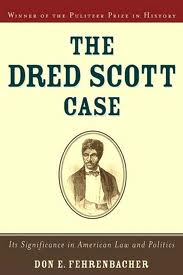
Our book recommendation for this episode is The Dred Scott Case: Its Significance in American Law and Politics by Don E. Fehrenbacher.
On March 6, 1857 Chief Justice Roger B. Taney delivered the Supreme Court’s decision against Dred Scott. Scott, a slave, maintained he had been emancipated as a result of having lived with his master in territory where slavery was forbidden by the Missouri Compromise. The decision did much more than resolve the fate of an elderly black man and his family, however; Dred Scott vs Sanford was the first instance in which the Supreme Court invalidated a major piece of federal legislation. the decision declared that Congress had no power to prohibit slavery in the federal territories, thereby intensifying the sectional conflict over slavery.
Listen to Episode 15: DredScott
In which we discuss the three-way presidential contest of 1856 & its importance in the stunning rise of the Republican Party. Plus, we see Abraham Lincoln start to position himself to be a leading national figure in the party.
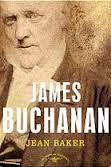
Our book recommendation for this episode is James Buchanan by Jean H Baker.
Almost no president was as well trained and well prepared for the office as James Buchanan. he had served in the Pennsylvania state legislature, the U.S. House, and the U.S. Senate; he was Secretary of State and was even offered a seat on the Supreme Court. And yet, by every measure except his own, James Buchanan was a miserable failure as president. Historian Jean H. Baker explains that we have rightly placed Buchanan at the bottom of the presidential rankings, but that is no excuse to forget him. To study Buchanan is to consider the implications of weak leadership in a time of national crisis. Elegantly written, Baker’s book offers a balanced look at a crucial moment in our nation’s history and explores a man who, when given the opportunity, failed to rise to the challenge.
Listen to Episode 14: Election1856
In which we look at the caning of Senator Charles Sumner of Massachusetts by Congressman Preston Brooks of South Carolina on May 22, 1856.
Our book recommendation for this episode is The Caning: The Assault That Drove America To Civil War by Stephen Puleo.
One of the most shocking and provocative events in American history, the caning of Charles Sumner by Preston Brooks destroyed any pretense of civility between North and South. Puleo’s book tells the incredible story of this pivotal event. While Sumner eventually recovered after a lengthy convalescence, sectional compromise had suffered a mortal blow. Moderate voices were drowned out completely, extremist views became intractable, and both sides were locked on a tragic collision course.
Listen to Episode 13: CaningSumner
In which we talk about Stephen Douglas’ sponsorship of the Kansas-Nebraska Act of 1854, the ensuing violence in “Bleeding Kansas,” and the rise of the Republican Party as a result of Northern outrage over the Kansas-Nebraska Act.

Our book recommendation this time is Bleeding Kansas: Contested Liberty in the Civil War Era by Nicole Etcheson.
Few people would have expected bloodshed in the Kansas Territory. But civil war tore this territory apart in the 1850s, and “Bleeding Kansas” became a forbidding symbol for the national crisis over the expansion of slavery. Etcheson seeks to revise our understanding of this era by focusing on whites’ concerns over their political liberties. The first comprehensive account of the conflict in Kansas in more than thirty years, her study emphasizes the issue of popular sovereignty rather than slavery’s moral or economic dimensions. As Etcheson demonstrates, the struggle over the political liberties of whites may have heightened the territory’s turmoil, but it led eventually to a broadening of the definition of freedom to include African-Americans. Her insightful re-examination sheds new light on this era and is essential reading for anyone interested in the ideological origins of the Civil War.

Listen to Episode 12: BleedingKansas
In which we discuss the Northern reaction to the new Fugitive Slave Law, which was part of the Compromise of 1850. Plus, we look at the incredible impact of Harriet Beecher Stowe’s anti-slavery novel, Uncle Tom’s Cabin.
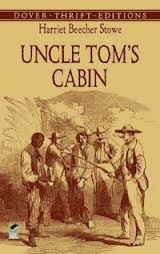
Our book recommendation for this episode is Harriet Beecher Stowe’s Uncle Tom’s Cabin, or Life Among the Lowly. With its publication in 1852, this book changed forever how Americans viewed slavery. It was a runaway bestseller, selling 300,000 copies in its first year.

Listen to Episode 11: FugitiveSlaveLaw
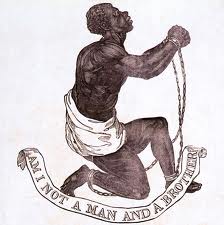
In which we take a fast pass through the abolitionist movement in the United States, and show how it made a significant contribution to the sectional unraveling that led to the Civil War.
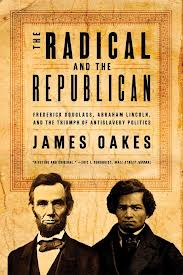
Our book recommendation for this episode is The Radical and the Republican: Frederick Douglass, Abraham Lincoln, and the Triumph of Antislavery Politics by James Oakes. “The perennial tension between principle and pragmatism in politics frames this engaging account of two Civil War Era icons. Oakes charts the course by which Douglass and Lincoln, initially far apart on the antislavery spectrum, gravitated toward each other… Douglass’s views on race were essentially modern; the book is really a study through his eyes of the more complex figure of Lincoln.”

Listen to Episode 10: AntiSlaveryMovement
In which we take a look at some pro-slavery arguments (which we don’t endorse in any way, shape, or form) to see why Seward’s “Higher Law” speech in March 1850 made southerners so very angry.
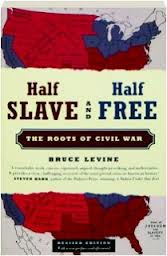
Our book recommendation for this episode is Half Slave and Half Free: The Roots of the Civil War by Bruce Levine. “Half Slave and Half Free is a succinct and persuasive treatment of the basic issues that precipitated the Civil War. Now, in a revised edition that includes a new preface and afterword and a revised and expanded bibliographic essay, Bruce Levine’s impressive work is brought completely up to date. Its argument is still compelling: that a popular basis for the Civil War developed out of the far-reaching and divisive changes in American life that came with the incomplete Revolution of 1776… changes that led to two very distinct social systems, one based on slavery, the other on free labor, which eventually made sectional differences within the framework of the Union irreconcilable.”

Listen to Episode 9: ProSlaveryArguments
In which we look at the Presidential Election of 1848 (Zachary Taylor wins!), the crisis over California’s admission to the Union as a free state (which nearly led to disunion & civil war), and how Henry Clay stepped into the breach and laid the groundwork that allowed Stephen A. Douglas to save the day with the Compromise of 1850.
Our book recommendation for this episode is At the Edge of the Precipice: Henry Clay and the Compromise that Saved the Union by Robert V. Remini. “In 1850, America hovered on the brink of disunion. Tensions between slaveholders and abolitionists mounted, as the debate over slavery grew rancorous. The addition of vast new territory in the wake of the Mexican war prompted Northern politicians to demand that new states remain free; in response, Southerners baldly threatened to secede from the Union. Only Henry Clay, America’s Great Compromiser, could keep the union together.”
Listen to Episode 8: Compromise1848
WAR WITH MEXICO (Part the Third)
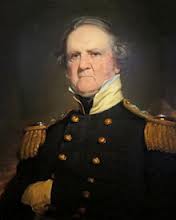 |
| Winfield Scott (1786-1866) |
In which we continue our discussion of America’s war with Mexico. We follow along as Major General Winfield Scott makes the dramatic decision to cut loose from his supply lines and march on Mexico City. We also continue putting the spotlight on some American officers, almost all West Point graduates, who fight in Mexico & then go on to some measure of fame in the Civil War. Plus, a fellow named Abraham Lincoln makes his first appearance in the podcast.
Our book recommendation for this episode is The Class of 1846: From West Point to Appomattox- Stonewall Jackson, George McClellan, and their Brothers by John C Waugh. In this collective biography, Waugh follows this class of West Pointers from the U.S. Military Academy to Mexico to the Civil War. The West Point class of 1846 graduated 59 men: 10 of them- including Stonewall Jackson- became Confederate generals; 12- including George McClellan- wore the stars for the Union.
Listen to Episode 7: MexicanWarPartThird